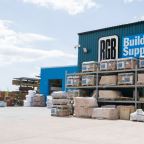
Housing shortage fuels higher prices in SW
House price growth increased again in the South West in June, pointing to renewed acceleration in house price inflation during the second half of the year, according to the latest RICS UK Residential Market Survey.
In the region, 50% more surveyors expect house prices to rise over the next three months, which is the highest proportion since April 2014. As new instructions continue to fall in the region, 25% more surveyors saw a fall rather than rise in the last month, demand
continued to edge upwards despite the more cautious attitude of lenders. 26% more surveyors saw a rise in buyer enquiries in the South West over the last month.
One reason for the slight recovery in buyer enquiries is likely to have been a further drop in mortgage rates which is accompanying the ongoing strength of the labour market. Across the UK, the West Midlands and London saw the strongest increase in potential buyers during the month.
Despite the lack of stock coming on to the market in the South West, 44% more chartered surveyors have seen a rise in newly agreed sales over the past month and 41% more surveyors expect sales to continue to increase in the region.
Across the rental sector in the region, the demand and supply imbalance is also visible and new instructions from landlords are at growing odds with the rising demand from would be tenants - putting further upward pressure on rents. 35% more chartered surveyors are seeing a rise rather than fall in demand with 10% more chartered surveyors seeing a fall rather than rise in new instructions.
Simon Rubinsohn, RICS Chief Economist, said: “Although much of the discussion about supply shortages has focused on the owner-occupier market, the latest RICS Residential Market Survey demonstrates in no uncertain terms that the issue, at least at a headline level, is just as visible in the rental sector. This is most clearly reflected in both the house price and rental projections over the medium term which comfortably exceeds the likely growth in wages.
"There had been some hope that the removal of political uncertainty following the general election would encourage more properties onto the market but the initial indications are that this is not proving to be the case. Additionally, the recent flat pattern of appraisals by respondents to the survey suggests this is not about to change anytime soon As a result, it is hardly surprising that prices across much of the country are continuing to be squeezed higher with property set to become ever more unaffordable."
Jeremy Blackburn, Head of Policy, said: “The Conservative Government has its sights set on a long term project to drive owner occupation and property owning. This is of course at the centre of our society and economy. Our market survey shows, however, that it is not just in this area where there is a marked shortfall in supply. Just as significant is the pressure that is clearly building across the rental sector, through which a large part of our population is housed. It is particularly important for the younger more mobile workforce that it is central to improving our economic productivity.
“Any housing benefit cuts announced in today’s Budget will push many out of the Private Rented Sector (PRS) and towards social housing, at a time when councils and housing associations are already constrained. This is then combined with the extension of the Right to Buy, which will take further units out of supply.
“In the last government the Prime Minister said if he could find one button in No10 to increase housing supply he would have pushed it. There has never been just one button, it is far more a complicated dashboard. This is why we need a coherent and coordinated strategy to increase supply across all tenures.”
Roger Punch, RICS South West Residential spokesperson said: ""The shortage of emerging supply is now likely to continue until at least September, which is very likely to push prices up over much of the West Country, continuing the trend of damaging affordability for some. New house building has recommenced in many areas but has little chance of being of adequate volume to cope with demand."













